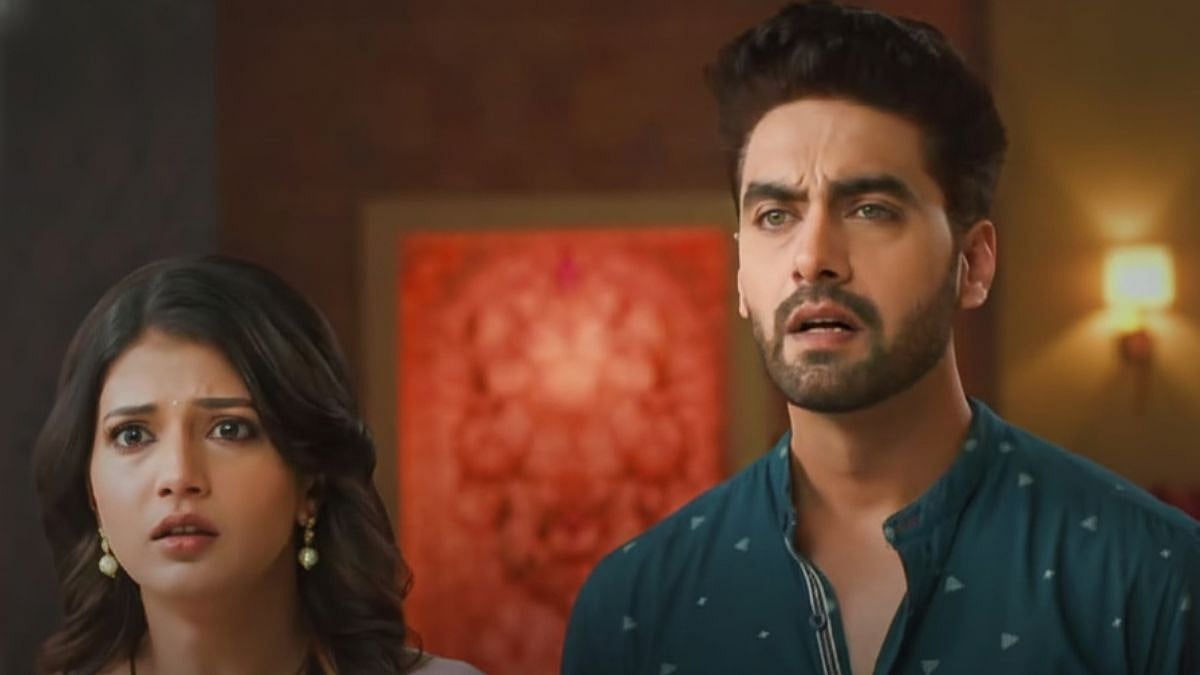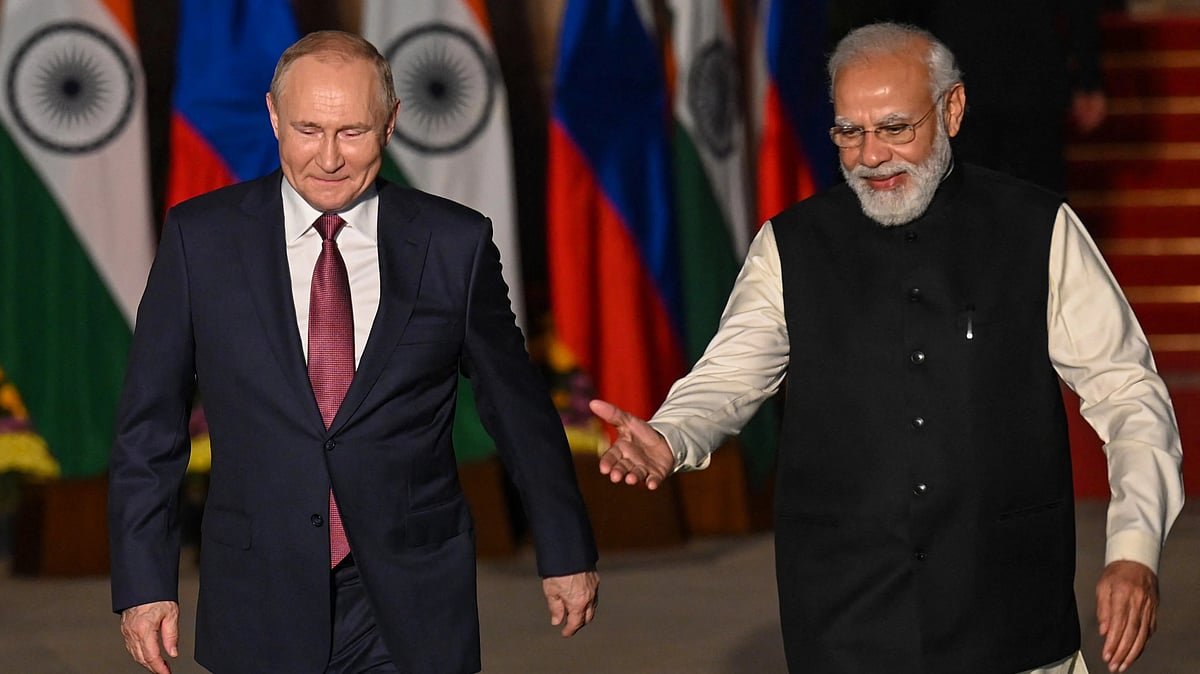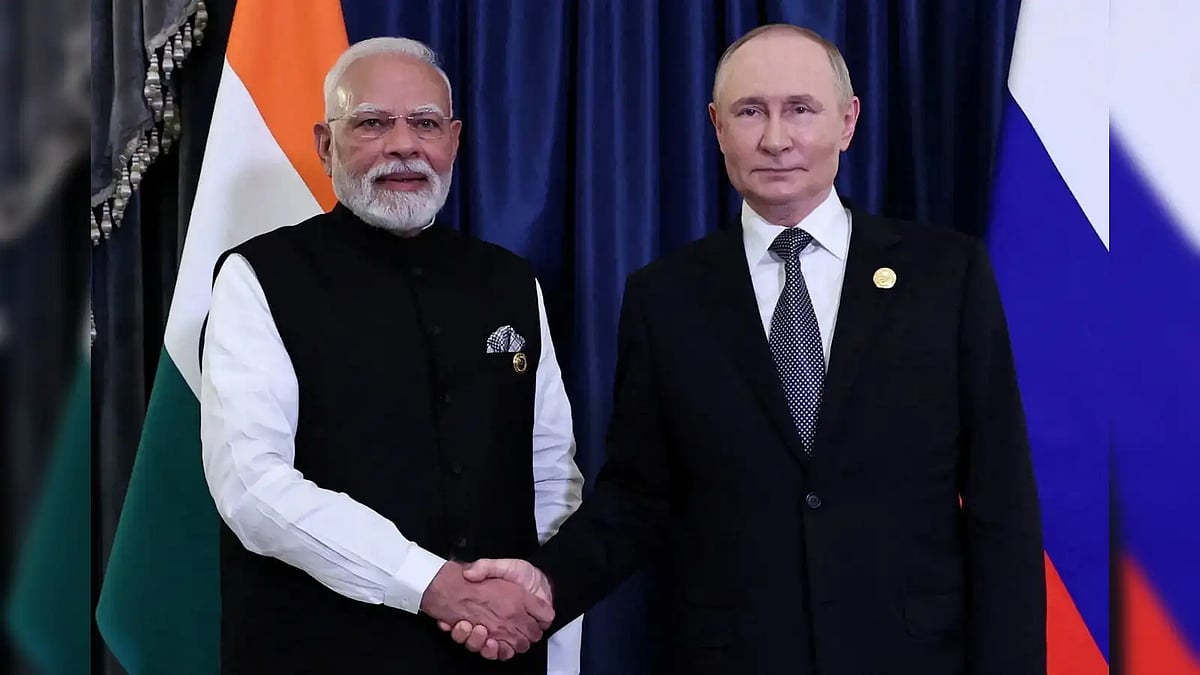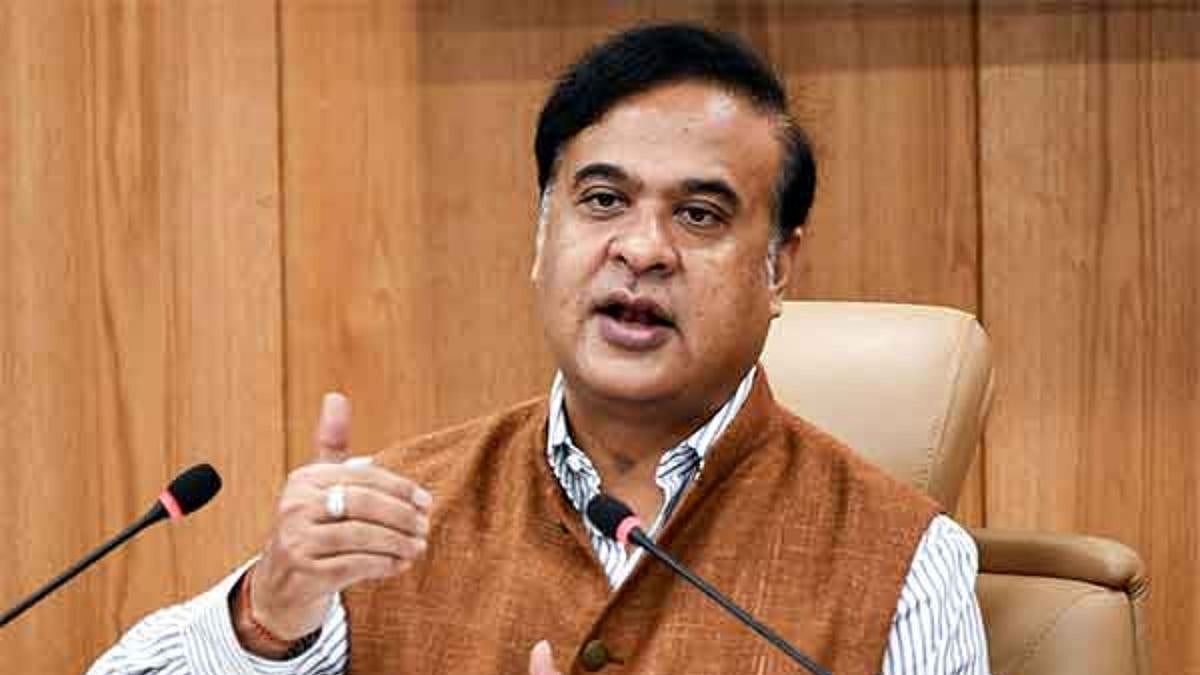There is a strong point of view among a section of the thinking classes that the all-party meeting at Prime Minister Narendra Modi’s residence on June 24 cannot pave the way for a solution to the problems of Jammu and Kashmir, unless Article 370 and statehood are restored and a dialogue with Pakistan is opened up.
The special status for the region will have to be re-accorded, or in other words, the BJP must be made to eat crow. Some also believe that the all-party meeting would not have been held at this juncture but for the dangers involved in the rise of the Taliban again in Afghanistan and pressure from external sources, particularly after the change of administration in Washington. There is also another view that it was a good beginning. A lot of water has flown down the Jhelum.
'Naya Kashmir'
A majority of Kashmir’s leaders have accepted, as a fait accompli, plans set forth by the Centre towards ‘Naya Kashmir’, which will begin with the process of delimitation, followed by elections and, depending on the evolving situation, the grant of statehood. Ladakh will, however, remain a Union Territory.
A rather more optimistic view is that there is a perceptible change of gear by the Central government as well as Kashmir’s political leaders, who are keen that democratic governance is not delayed further. As a matter of fact, Modi did not mince words on the sense of priority before his government, even as he and Home Minister Amit Shah heard one of the 14 Kashmir leaders (at the all-party meet) reiterate the demand for the restoration of Article 370 and a dialogue with Pakistan and the restoration of statehood before fresh elections. The Centre is firm that the delimitation exercise must precede the election and that statehood should wait till such a time after the elections.
Prior to 2019, Jammu and Kashmir had a total of 111 seats, with 24 reserved and vacant for Pakistan-occupied Kashmir. The split of the state into two Union Territories -- Jammu and Kashmir and Ladakh -- after the decree of August 5, 2019, which did away with Article 370, reduced the strength of the J&K Assembly to 83 from 87. A delimitation commission was set up in March 2020, to delineate seven more constituencies, to take the total to 90.
Delimitation exercise
The delimitation exercise is viewed as a very significant political factor because for the first time, it will make provision for quota for the Scheduled Tribes in the assembly. By delimitation, a balance is also sought to be struck in the number of seats between the two regions -- Jammu and the Kashmir valley.
One does not know if the trust gap between the PM and the Kashmir leaders was narrowed following the all-party meeting. But the bigger point that the meeting seemed to underscore was that the political leaders of Kashmir and the Centre are on the same page regarding the early restoration of an elected government.
From the Centre’s point of view, President’s rule has achieved its objective of ‘cleaning up’ after the removal of Article 370. It is time to move towards popular rule, rather than perpetuate a bureaucratic system.
As for Kashmir leaders, they believe they should not be seen as standing in the way of impending changes when they know the return to a pre-2019 status is inconceivable under Modi’s reign. It may, however, seem ironic that the politics has come down, from demand of the restoration of the pre-1953 position (during Sheikh Abdullah’s era) to the pre-2019 position today.
Three ex-CMs, three views
For the record, the three former chief ministers appear to take different stands. Excepting Mehbooba Mufti, who insists on dialogue with Pakistan and non-participation in the political process without restoration of Article 370, Dr Farooq Abdullah believes that restoration of the statehood before the elections is a more realistic approach. His son, Omar Abdullah, however, does not mince words saying that he has zero expectation from the Modi government on the issue of Article 370 and would wait for the Supreme Court to settle the issue.
It is undeniable that the Modi government has approached the current situation from a position of strength. It will continue to engage all stake-holders from that position only. In any case, his administration never envisaged President’s rule as a long-term solution. Though the administration was tasked with speeding up development work, it was realised that an elected government would always enjoy greater leverage in this process.
Having achieved its pledge on Article 370, the Centre too realises that the solution to the Kashmir issue does require a healing process--without compromising on the opposition to the militancy. No government in the future can easily restore the pre-2019 status or situation. That’s the achievement of the BJP, no matter what its critics may think.
Drone attack
But the security situation is fragile despite the administration claiming success in breaking the nexus involving the separatists, money launderers and politicians. We are already witness to a first: terrorists have used low-flying drones to drop two improvised explosive devices (IEDs) in the technical area of the Indian Air Force station in Jammu in the early hours of June 27. This station is only 14kms away from the border with Pakistan. After 24 hours of the daring act, another set of two drones were seen near a military station in Jammu. However, the Army troops fired at the drones, which then flew away. There were no casualties but the attacks must be taken seriously.
Article 370 or not, terrorists are back in action. They want to send a strong message about their undeterred prowess by attacking a high-security defence installation. But more than anything, they have struck when there is a ceasefire with Pakistan. It is also a way of mocking Modi’s political outreach.
Although the Lashkar-e-Taiba (LeT) has used small drones to transport arms and explosives across the Line of Control since 2018, this is the first time terrorists have conducted an actual attack using sophisticated technology. Experts have always believed that it is only a matter of time before drones become weapons of terror.
'Dilli aur Dil ki Doori'
Of course, we are told that incoming small drones are hard to detect. That is why terrorists are told by their handlers to use drones. Drones cannot even be heard by ground troops. Security guards stationed around Jammu airport’s perimeter could not detect the incoming drones. Besides, the drones do not need any Pakistani hand to be directly present near the spot to operate them. This lowers the risk of exposure and international condemnation of Pakistan--in the event of somebody being caught in the act.
Such attacks may intensify because the timing of the attack suggests that the objective is to sabotage the India-Pakistan backchannel dialogue too, as well as the political process in the state. Our military authorities, as yet, may not have the complete technology to counter such small drones. The traditional air defence system cannot be tuned in to pick up small radar signatures without some scare and confusion. However, in the era of such drones, the Indian security forces know they have to be alert to the new threat. So, counter-measures will definitely have to be taken. Terrorists have given us a warning.
Therefore, Modi's mission for removing ‘Dilli aur dil ki doori’ must move post-haste and show new ways to win friends again.
The writer is former Senior Associate Editor, Hindustan Times, and Political Editor, Deccan Herald, New Delhi









